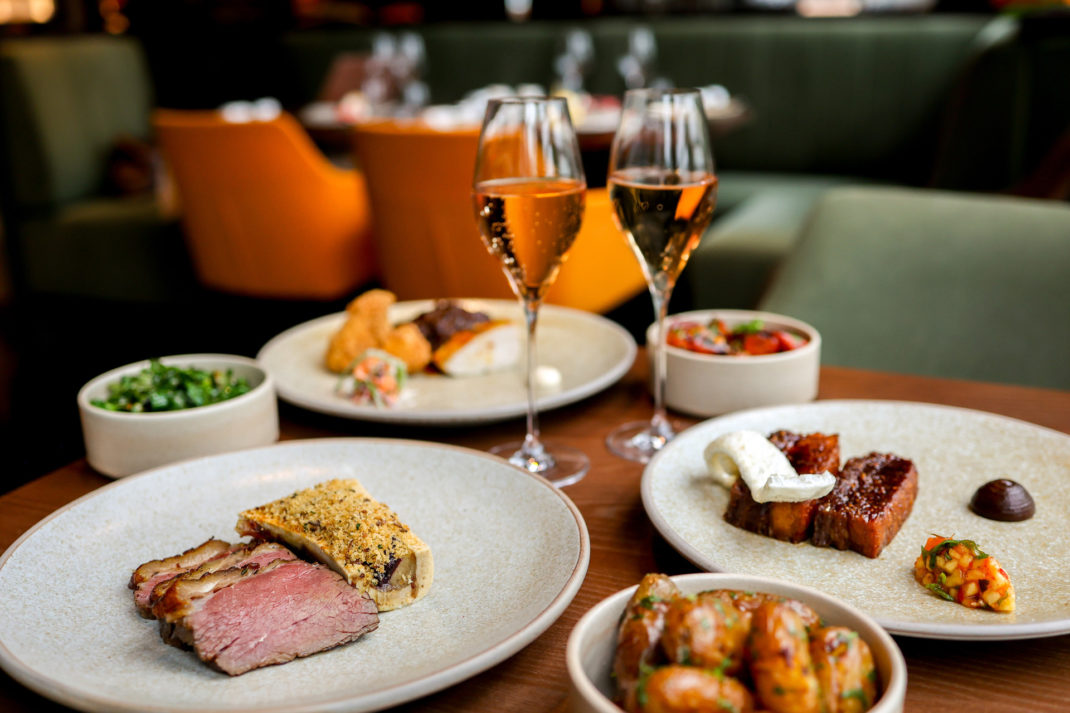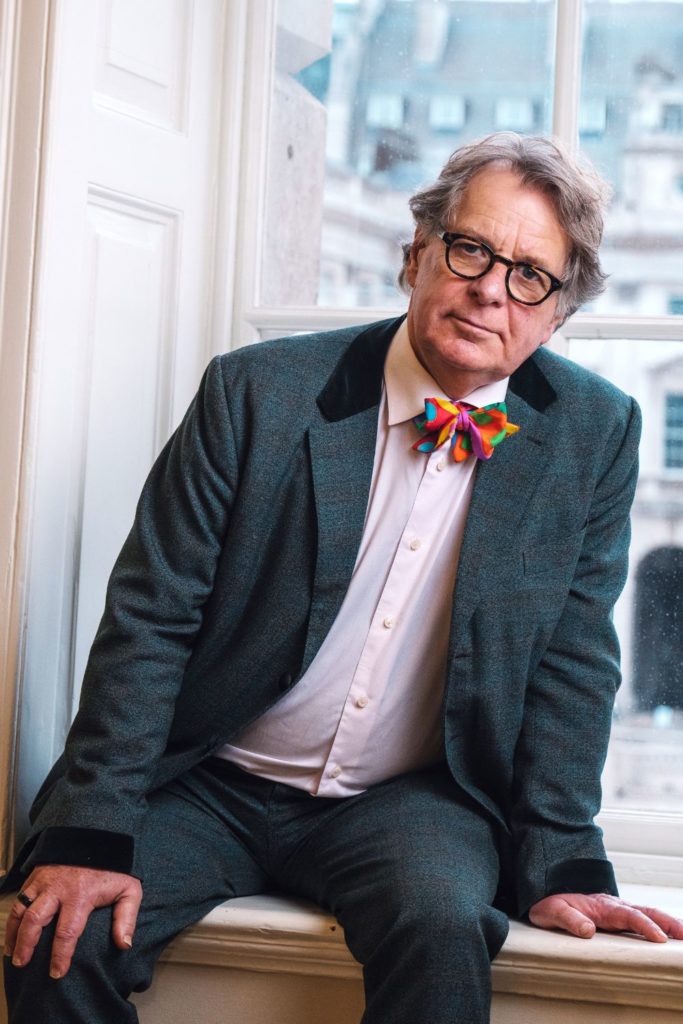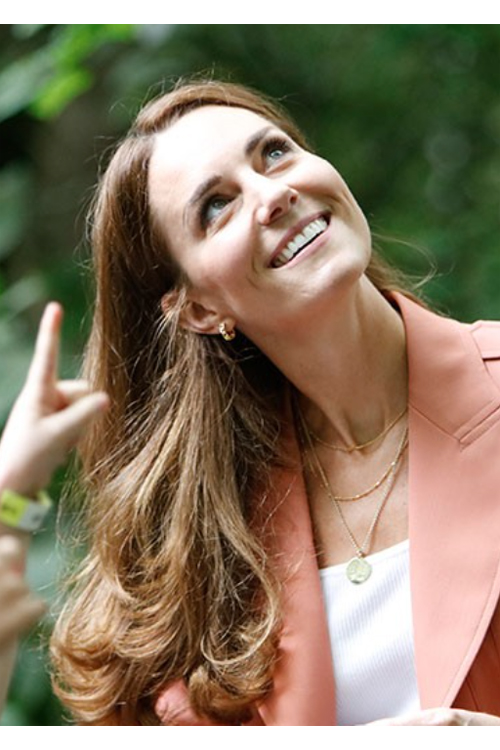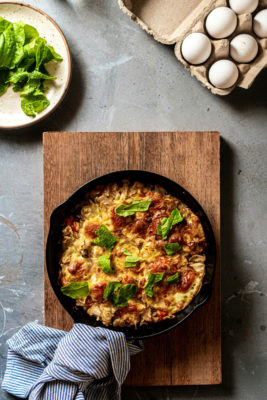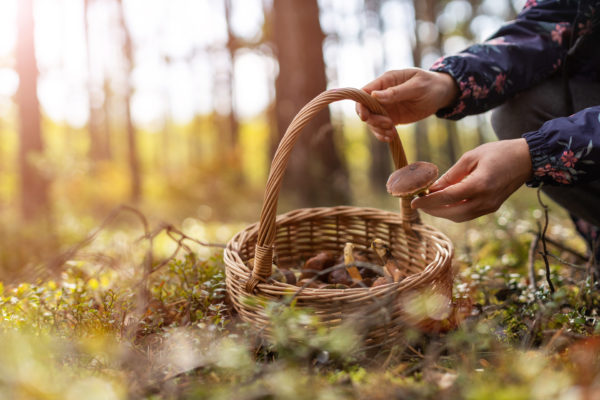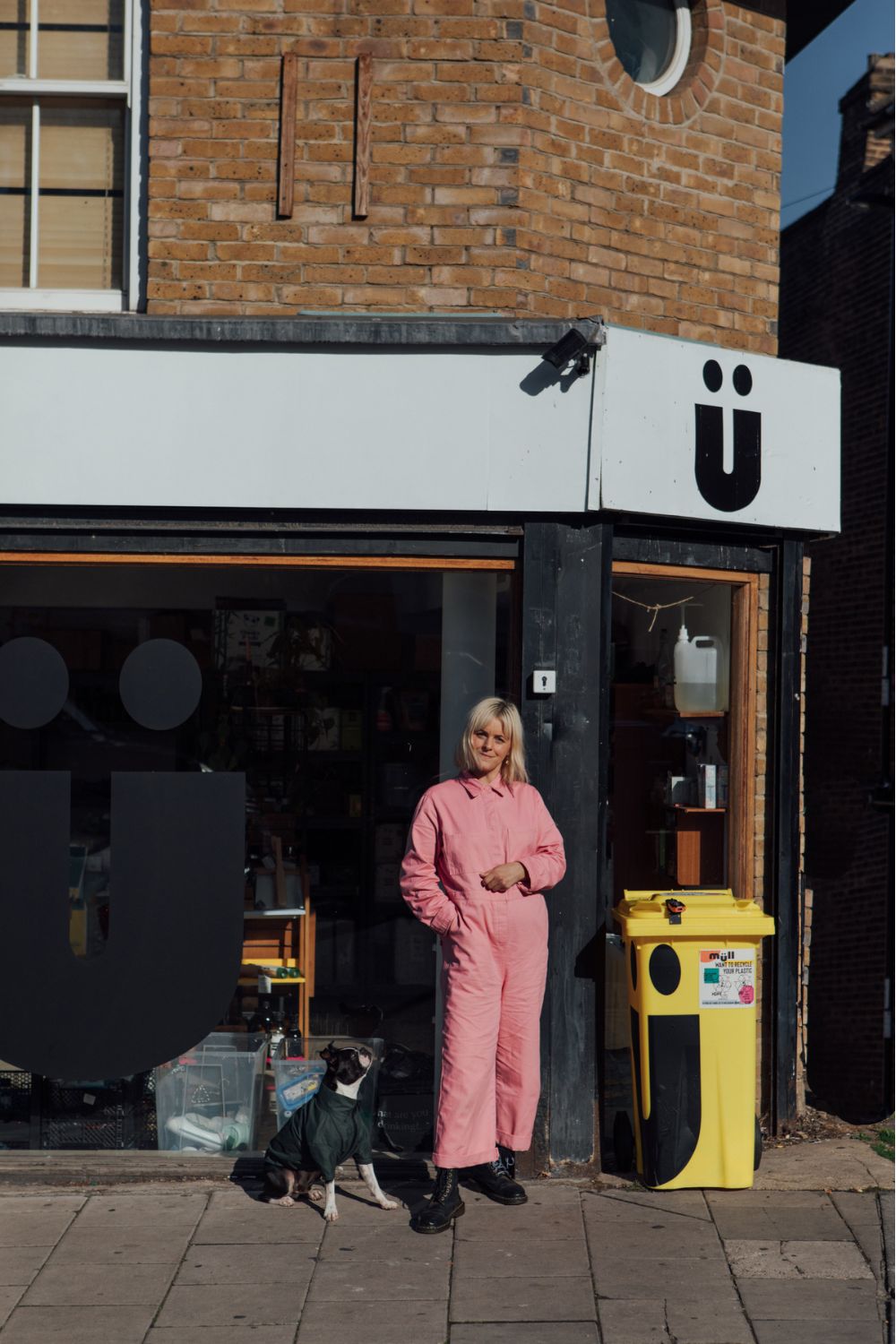
Green Heroes: Charlie Rudkin-Wilson, Founder Of Müll Club
By
6 months ago
'I’m not just providing an alternative for a few – I’m aiming to completely disrupt the entire recycling system'
Meet the founder of Müll Club, Charlie Rudkin-Wilson – the woman committed to transforming our (broken) recycling system.
Charlie Rudkin-Wilson Talks Plastic Waste, Fast Fashion & The Future Of Recycling
When was your green lightbulb moment?
There were several pivotal moments that steered me toward a deeper commitment to recycling. The turning point came when I noticed my refill shop in South East London becoming quieter each day. At the same time, I was witnessing similar shops closing across the country. I realised that while changing shopping habits and reducing plastic consumption is crucial, it’s an uphill battle. If I couldn’t directly influence consumer behavior, I knew I could make an impact by ensuring that the plastic in circulation was recycled properly.
Currently, in the UK, it’s estimated that only 17 percent of plastic waste entering the recycling system actually gets recycled. At Müll, we’re committed to changing that. We guarantee that 100 percent of the plastic sent to us is recycled, setting a new standard for how we manage plastic waste.
What motivated you to launch your brand?
The motivation to launch Müll Club came from my frustration with the inefficiencies in the UK’s recycling system. Once I began investigating it, I was surprised by how complicated and ineffective it had become. As I explored alternative options that I could implement, it quickly became clear that this was the obvious next step for me. What started as a small idea soon grew into something much larger. Now, I’m not just providing an alternative for a few – I’m aiming to completely disrupt the entire recycling system.
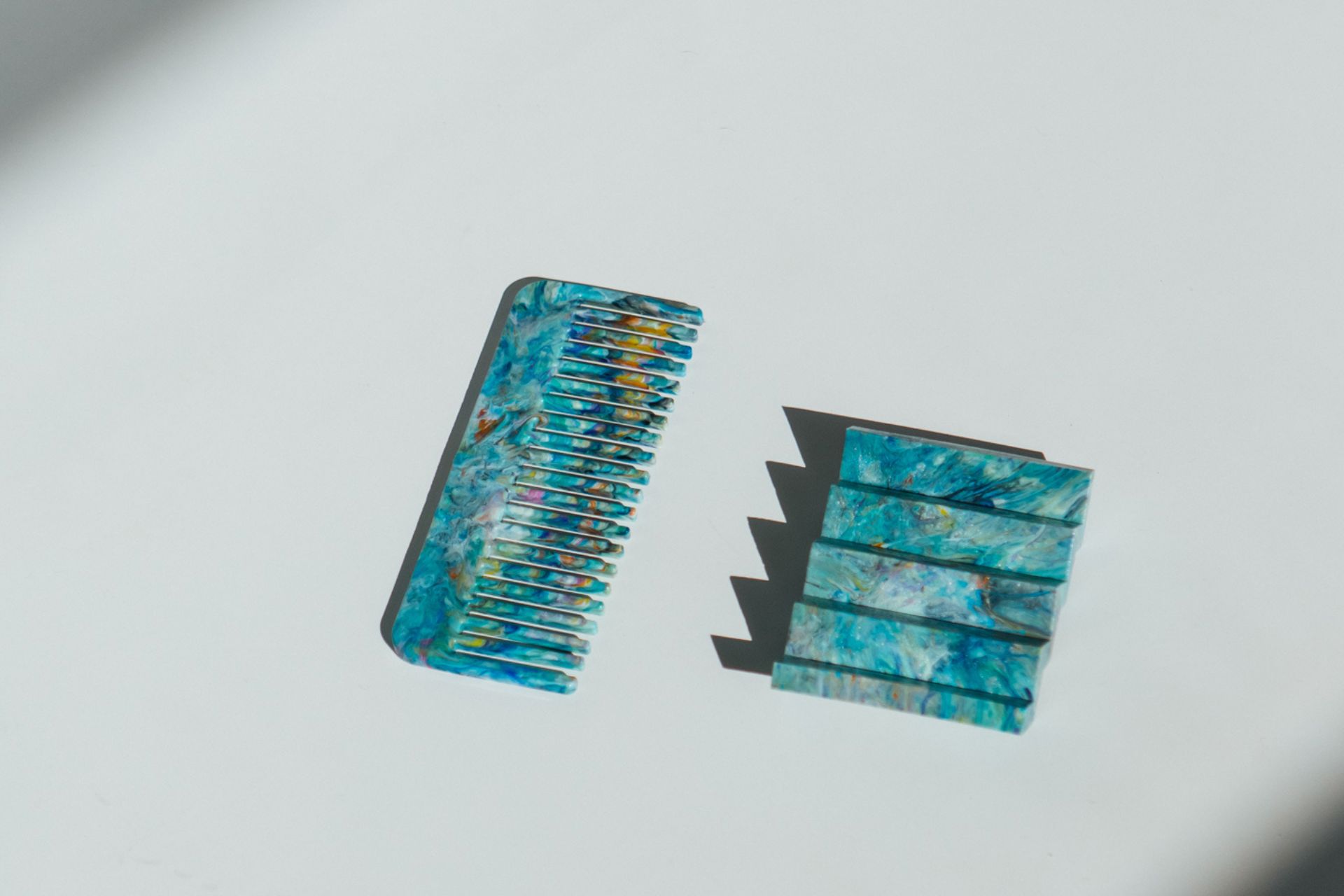
(c) Helena Dolby
What do you want people to know about your brand – what are its values and aim?
Müll Club’s values are all about making a real difference in a way that’s transparent, innovative, and impactful. At its core, sustainability is key – we’re committed to ensuring that 100 percent of the plastic waste sent to us gets properly recycled, helping to reduce waste and support a circular economy.
Transparency is hugely important to us. We believe people deserve to know exactly what happens to their plastic waste, so we keep things open and honest every step of the way. Innovation drives us forward too; we’re always looking for new and better ways to shake up the recycling system and make it more efficient.
Ultimately, it’s about impact. We’re not just providing a small solution, we’re aiming for real, large-scale change in how plastic waste is managed. And of course, we take our responsibility seriously – we want to empower people to make a positive, tangible difference for the environment. The real joy comes in transforming plastic waste and creating something beautiful with it. Anyone in Scotland, England and Wales can get involved and recycle with us via our portal, mull.hub-club.co.uk.
What makes you feel positive about a sustainable future?
I have to admit, I’m not entirely optimistic about a sustainable future. I know that’s not the most popular thing to say, but with the continuation of capitalism and the constant fight against overconsumption, it’s hard to see how we can stop the negative momentum of the climate crisis. We need to treat this like the emergency it is.
The frustrating part is that we already have the technology to make a real difference and slow things down. But what we’re missing is a sense of urgency – especially in the media. If a child were about to burn their hand on a fire, you wouldn’t quietly whisper, ‘Don’t touch that.’ You’d shout, make sure they heard you, and take action immediately. That’s what we need right now – people shouting, demonstrating the urgency of the situation.
The problem is the only people really shouting are the brave activists, and they’re being silenced by new restrictive laws. Until we all join the chorus and start treating this crisis like a crisis, it’s hard to feel truly hopeful. But if that shift happens, maybe I’d feel more positive about the future.
And what are the facts that make you fearful?
The latest findings on plastic waste in the UK are alarming and paint a troubling picture. According to Everyday Plastic’s recent survey, UK households are throwing away a staggering 1.7 billion pieces of plastic every week. What’s even more concerning is how this waste is being managed. Shockingly, 58 percent of that plastic is incinerated, a process that releases harmful emissions and contributes to further environmental damage.
The survey also reveals that plastic incineration has increased significantly, jumping from 46 percent to 58 percent. This trend suggests that local councils and the government are increasingly viewing incineration as a viable solution to the plastic crisis. But, in reality, this approach only perpetuates the cycle of plastic production. Essentially, we’re treating the symptom without addressing the root cause.
What’s truly frightening is that this approach ignores the potential of using the plastic we’ve already produced. By incinerating so much plastic, we’re locking ourselves into a cycle that undermines sustainability efforts and keeps us reliant on virgin plastic production. We have to question why incineration is being treated as a solution when it only exacerbates the problem. If we want to make real progress, recycling and reducing plastic waste must be at the forefront of our strategies.
Who is your own green hero?
There are many people I admire when it comes to sustainability, but my true ‘green hero’ moment came after reading Mike Berners-Lee’s book How Bad Are Bananas?. It completely changed my perspective on how every single action we take has an environmental impact, no matter how small. The book laid out the carbon footprint of everyday things in such a clear, relatable way that I found myself reassessing my choices immediately. Overnight, I began making more conscious decisions about my lifestyle, driven by a deeper understanding of the real impact behind them.
Your favourite sustainable product?
I’m a big fan of UpCircle skincare. They create products from waste materials such as coffee grounds and give that material an entirely new life. Their products are all refillable, which is a huge bonus, and I love the idea of giving containers a second life. Honestly, refilling and reusing anything just brings me so much joy!
Name three more of your favourite brands who are doing the right thing and why you like them?
One of my favourites is Fill, which makes sustainable living so effortless with their eco-friendly, refillable household cleaning products. I use them daily, and it’s such a relief to know I’m cutting down on single-use plastic.
I’ve also had the privilege of visiting LUSH Headquarters and seeing firsthand their impressive recycling systems. Everything they do is thoughtful – kind to the planet and people – and they’re just an all-around beautiful company.
Faith In Nature is another standout. They’ve been pioneers in refillable body wash, shampoo, and conditioner, making sustainability easy to integrate into everyday routines. Honestly, I could go on, but these three brands have truly transformed the way I live more consciously!
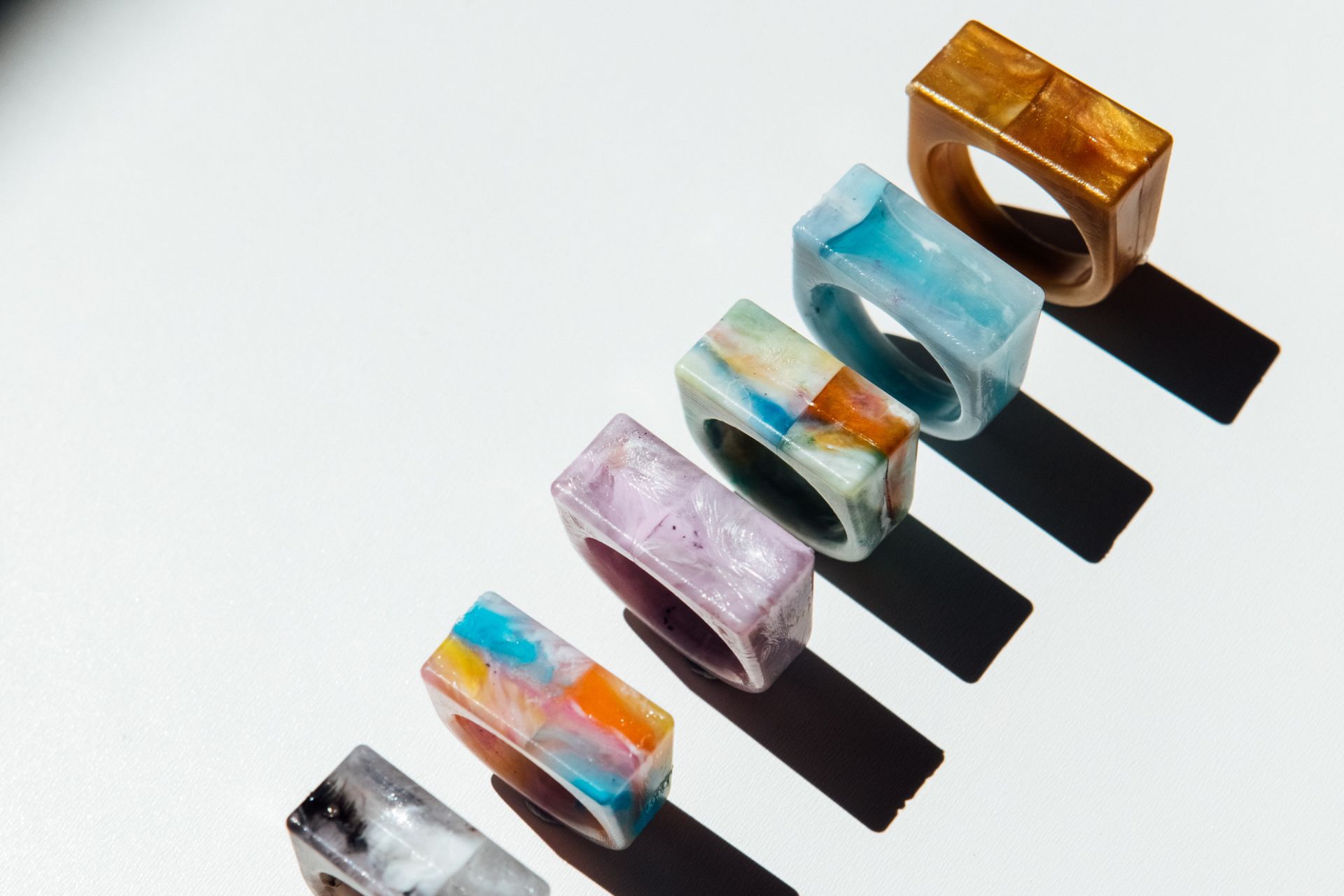
(c) Helena Dolby
What are the biggest challenges in running a sustainable business?
The challenges of building a sustainable business aren’t too different from starting any other business – launching a startup is hard. People warn you, but you never really understand the difficulty until you’re living it. Now, add to that the task of trying to change daily habits and disrupt an entire industry, and the hurdles multiply! Every day brings new challenges, but I’ve learned that making time for myself is essential. For me, that means going for runs with my dog and daily sea swims. It’s those moments that give me the happy chemicals I need to tackle the daily struggles head-on.
What advice can you give to other businesses who are wanting to do better?
Start small and build from there. Focus on one area where you can make a significant impact, whether it’s reducing plastic use, minimising energy consumption, or choosing eco-friendly materials. It’s essential to align sustainability efforts with your business values and strengths, so you’re making changes that feel authentic and achievable.
Three things we should all, as individuals, be doing to help in the climate change fight?
My first step was giving up buying brand new clothes – but don’t get me wrong, I still have a full wardrobe! Now, I shop through platforms like Vinted and love a good charity shop find. I also love shopping in stores that focus on resale such as Positive Retail in Margate. It’s a great way to stay stylish while avoiding fast fashion.
Be mindful of the products you buy – opt for items that are kind to the environment, and support your local refill shop. There’s something so satisfying about refilling your products and cutting down on waste. And of course, I have to say… recycling with us is another fantastic way to make a difference!
What sustainable business practices are you most proud of?
I’m incredibly proud of how far we’ve come – so far, we’ve recycled over 700kg of plastic, and with some exciting projects in the pipeline, we’re on track to double that amount by the end of 2024.
Best piece of advice to anyone thinking about launching a sustainable business?
My advice to anyone looking to launch a sustainable business is to focus on what you’re truly passionate about and where your strengths lie. For me, after years of running a refill shop, I became obsessed with minimising plastic waste, so moving into recycling felt like a natural next step. But the truth is, I’m still learning every day. You don’t need to be an expert to get started; understanding a bit just helps you figure out if your chosen environmental focus is the right one for you.
For example, tackling biodiversity wouldn’t have worked for me – I’m terrified of bugs! Plus, I knew I couldn’t pick something that required long, drawn-out meetings, as I have ADHD, and those meetings would have been just as daunting as the bugs. I needed something creative, hands-on, and aligned with my passion for reducing plastic waste. So, find your niche where passion, knowledge, and your personal strengths intersect – it makes all the difference! But be prepared, it will not be easy.
To find out more about the recycling club, visit Müll Club.

